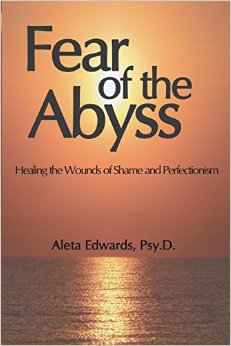|
I have been trying for the last several months to get better at using social media. I have to say that I have learned a great deal com-pared to what I knew before, but there is still so much to learn and I’m having a harder time than I wish I were, although the victories feel tremendous.
I have a social media instructor named Jennifer. She is only 30 and she does social media for a living and knows all of this. She is a very patient person and is very enthu-siastic when I master something. Not only do I have to master it, but remember it, and part of my difficulty lies in there being so many key strokes to each activity. I feel like the idea is to develop the intuitions enough to be able to do things not by remembering each stroke, but by having a close enough idea to use the menus.
1 Comment
Maybe when we think of couples seeking counseling, we think of young or even middle-aged couples, but the truth is therapists see older ones, too, or older individuals seeking help because of an issue with their spouse or partner. Getting older and facing a serious illness and/or death is never easy, but what happens when both parties in the couple are the types who need to be needed, to rescue, but are afraid to need?
In the course of the years, I have met numerous couples where both needed to be needed, in a relationship in which both felt unappreciated and kept doing more and more while the other person was doing the same, and the relationship continued to worsen as each escalated this behavior. Imagine their surprise when a couple comes to see that they both want the same thing—to be needed and appreciated—and understand why their intense efforts to be indispensable are not working! In this case both people need to see what is happening and address their own issues and how they impact the relationship. She was about 80 and didn't consider herself old. She lived in a nursing home with her husband, who usually didn't know who she was. She couldn't hear, so doing therapy with her meant you had to write her notes, and very quickly. She was also extremely intelligent, probably gifted, but then in her era most people didn't care if a woman was gifted, and she was pushed to get married and have children. She got dialysis a few times a week, and I hadn't known how brutal a process this is, involving sitting up for hours and having huge bruises to show for it. She had one leg as her diabetes necessitated an amputation.
I never knew anyone as grateful for life as she was. She once told me that she knew I would cry for her when she died, but that she would be living in glory, happy as can be in a better place. Yet she was human. A doctor once talked down to her and she was understandably very angry. She was very religious and said that people with their egos made her sick. In mid-session she started to laugh and said, "Look at me! I'm not much better than he is or I wouldn't be so upset!" We talked about how it is easier to not involve the ego so much when not challenged by someone who is really stuck there and how quickly we can fall. She often said she loved me, and told me I was not a pompous ass. I would tell her sometimes in my field you end up being therapist to someone superior to you and you keep learning from them. She smiled. |
Aleta Edwards, Psy.D.I am a psychotherapist in private practice, with a strong interest in shame and perfectionism. I will periodically post my thoughts about these topics and other observations relating to emotional health. Archives
March 2022
Categories
All
|

 RSS Feed
RSS Feed
